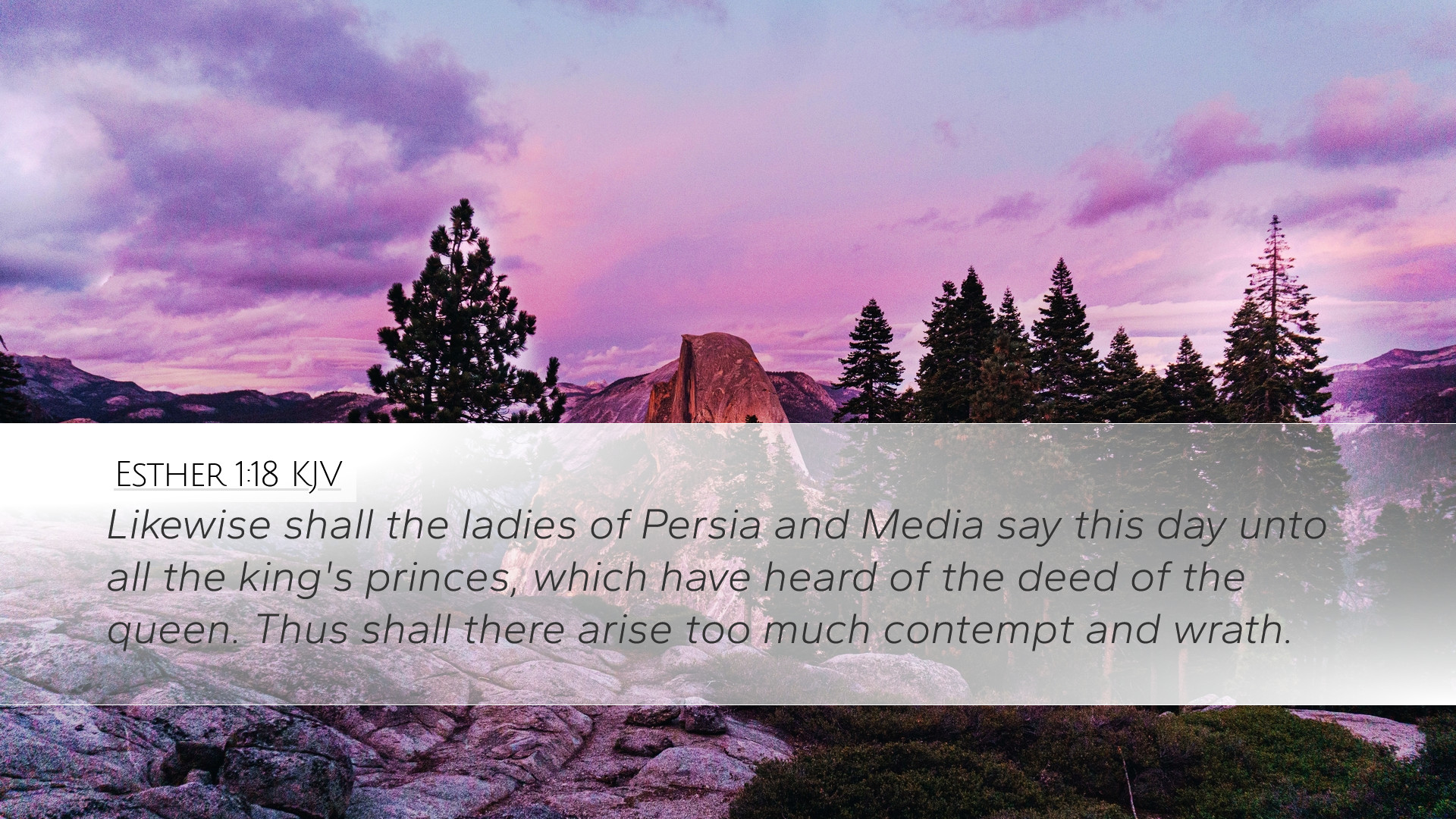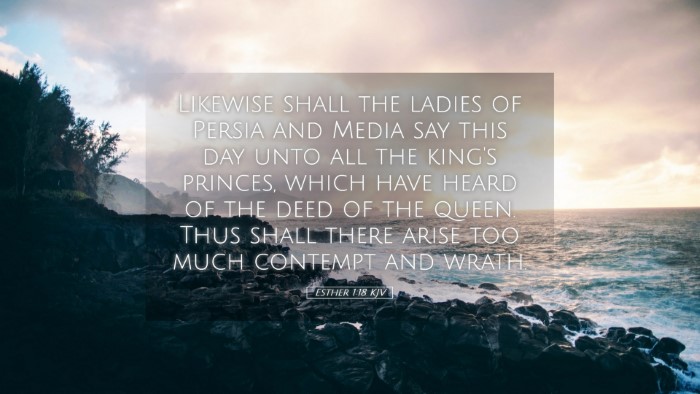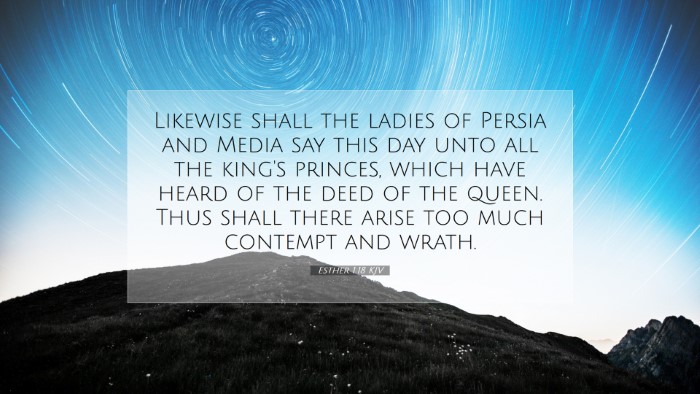Old Testament
Genesis Exodus Leviticus Numbers Deuteronomy Joshua Judges Ruth 1 Samuel 2 Samuel 1 Kings 2 Kings 1 Chronicles 2 Chronicles Ezra Nehemiah Esther Job Psalms Proverbs Ecclesiastes Song of Solomon Isaiah Jeremiah Lamentations Ezekiel Daniel Hosea Joel Amos Obadiah Jonah Micah Nahum Habakkuk Zephaniah Haggai Zechariah MalachiEsther 1:18
Esther 1:18 KJV
Likewise shall the ladies of Persia and Media say this day unto all the king's princes, which have heard of the deed of the queen. Thus shall there arise too much contempt and wrath.
Esther 1:18 Bible Commentary
Commentary on Esther 1:18
Esther 1:18 (KJV): "Likewise shall the ladies of Persia and Media say this day unto all the king's princes, which have heard of the deed of the queen. Thus shall there arise too much contempt and wrath."
Introduction
The verse in question occurs within the context of Queen Vashti's refusal to appear before King Ahasuerus during the royal feast, igniting a serious political and social response. This commentary seeks to explore the implications of Vashti's actions and the resultant consequences as presented in public domain sources. Insights from various commentaries will be synthesized to provide a comprehensive understanding suitable for pastors, students, theologians, and Bible scholars.
Historical Context
The book of Esther is set in the Persian Empire during the reign of Ahasuerus, traditionally identified with Xerxes I. Understanding the sociocultural dynamics of Persia at this time is crucial, as the customs concerning women, especially within royal households, are vital to interpreting this verse.
Matthew Henry's Perspective
Henry addresses the principal theme of this passage: the implications of Vashti's defiance against the king's decree. He highlights the significance of royal authority and obedience within the context of ancient Near Eastern cultures. According to Henry:
- This verse serves as a pivotal warning. It implies that Vashti's actions could lead other women, particularly in the higher echelons of society, to challenge their husbands and authorities.
- The concern stems from the fear that such behavior could inspire disrespect for established norms, leading to a breakdown in familial and social order.
Albert Barnes' Analysis
Barnes provides a thorough examination of this verse, emphasizing the reaction of the princes after hearing of Vashti's disobedience. His comments reflect on the cultural expectations of women and how Vashti's actions may create a ripple effect:
- He argues that the statement regarding the ladies of Persia and Media indicates the broader societal implications of royal behavior.
- Barnes notes that the princes express a valid concern about the potential rise of "contempt and wrath"—a signal of social disintegration if women are emboldened to disregard the authority of their husbands.
Insights from Adam Clarke
Clarke complements this discourse by providing a theological reflection on the roles of power and submission. In his commentary, he points out:
- Esther 1:18 illustrates the overarching theme of authority not just within the royal palace, but in the broader schema of society, highlighting God’s sovereignty in human affairs.
- Clarke warns against the pride that often accompanies power, suggesting that the king's decree was rooted in an understanding of how authority is perceived and should be honored.
Theological Reflections
Esther 1:18 is not solely a historical account; it is rich with theological implications applicable to contemporary discourse. This verse raises questions about authority, gender roles, and societal norms both in ancient and modern contexts.
Authority and Power Structures
From the analysis, it becomes clear that the verse reflects the delicate balance of authority in human relationships. The king's authority is challenged by Vashti, and while her act of defiance is seen as a threat, it also serves to examine the nature of power and respect.
Gender Dynamics
The commentary highlights the gender expectations of the time and how they resonate still today. Vashti's refusal to acquiesce demonstrates a complex interaction with her identity and power, opening dialogues about women's rights and societal place.
Conclusion
Through the perspectives of Matthew Henry, Albert Barnes, and Adam Clarke, Esther 1:18 emerges as a critical point in understanding authority, societal expectations, and gender roles. The insights garnered from these commentaries provide a rich tapestry for reflection and application in a contemporary setting. This examination serves to remind readers that even in moments of personal defiance, larger themes of power, respect, and social dynamics are at play—inviting further theological reflection and discussion.


